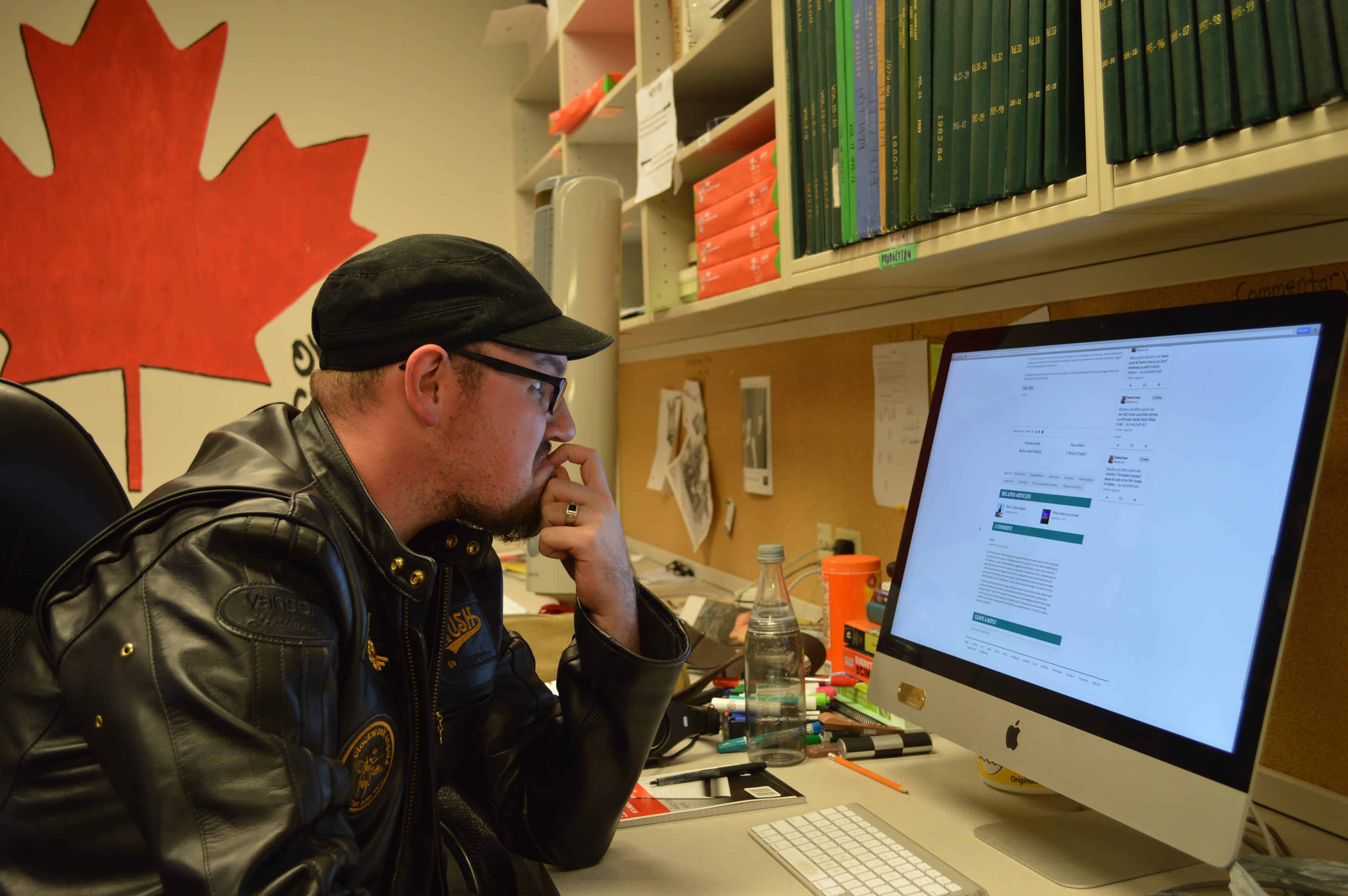Thoughtful words

![[1B] - Thoughtful Words - MC](http://www.carillonregina.com/wp-content/uploads/2013/01/1B-Thoughtful-Words-MC-1024x759.jpg) Evaluating what we say is important to healthy dialogue
Evaluating what we say is important to healthy dialogue
The old adage think before you speak is true, but sometimes thinking after you speak is just as important.
We’re lucky to live in a society where free speech is valued, and in this way we are able to discuss things such as gay rights, women’s rights, Idle No More, and the list goes on of issues facing us.
In the context of discussions on these topics, everyone is aware that there is homophobes, sexists, and racists out there in the world, here in this university, and especially on the online comments of any CBC article ever written.
Nevertheless, I was having a conversation with a friend about the Federal Liberal leadership race, when he quietly said after one of my assertions, “that’s sexist.”
I was floored, there’s no way I’m sexist! At first, I assumed that he must have misheard or misunderstood me. So, naturally I believed with the utmost conviction that what I was saying was fine, and when I began to defend myself, I started out with the phrase, “I’m not being sexist, but…”
I remember myself making fun of that line hundreds of times, so good one. As most people know, this is the age-old way of saying something inappropriate and justifying it. More or less, I was digging myself into a deeper hole.
Thankfully, the conversation moved on but what happened had shocked me, and I truly started analyzing the statement, and it took me until later that night to see what I had said was wrong, and indeed sexist.
This could honestly happen to anyone; someone hears something and internalizes it without realizing what he or she is saying is wrong, and it happened to me. I’m not trying to blame it on someone else – it was my mistake, and I’m just glad I learned from it. I realize that when we say something that is pointed out as racist, sexist, or discriminatory we need to calmly hear out why people think what we said is wrong. As a side note and a rare exception, if someone is merely character assassinating you, then pay no heed. Otherwise, it’s important to analyze your allegedly discriminatory statement,
The point I’m stressing is that we need to be careful and constantly reassess what we say, because something that seems to be common sense may not be. Also, it’s important if someone does say something wrong, to point it out but to point it out in a proper way. Nobody likes being told they’re wrong, but if it’s done correctly like my friend did, then it shouldn’t cause a problem.
I admit, it’s hard to say that I was wrong, but looking back now I feel better that I don’t hold that view any longer, and ultimately I learned from my blunder and walked away a better person. I feel that I gained two perspectives from this experience, firstly that what I said was wrong, but secondly, that to enjoy a free society today, it is imperative to constantly reassess and be critical of our ways of thinking. This can only led to a more harmonious way of life.
Michael Chmielewski
Contributor
Photo courtesy of Disney.wikia.com








